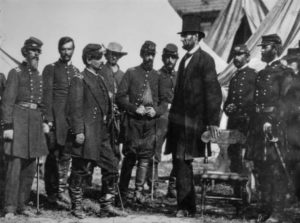Merely riding an undetectable pale speck on a universe spanning 93 billion light-years, our existence falls victim daily to our insignificant human conceits. Our psyches attempt to confront this vast, cosmic glory by assigning inordinate, life-or-death value to every inconvenience. We convince ourselves we are special, inherently cursed snowflakes, instead of humbling ourselves before the universe and our Creator. The truth is pride is the root of all insecurity, and you are not special therefore the world is not out to get you. A gracious and humble mentality is the antidote to low self-esteem. It is the opposite of pride — which has you convinced you’re entitled to coveted things, and the universe revolves around you to inflict suffering. Humble yourself and walk after the Spirit, not the carnal.
Nothing is more humbling than looking at the fiery white stars and feeling the weight of your frivolous problems dissolve with the night sky. Yet nothing is more inspiring than realizing our conscious existence is more than a lucky coincidence among 200 billion galaxies. Our pride desperately grapples with our cosmic insignificance by placing importance on frivolities that will not matter at the end of your existence. Human existence is unique among the universe, but you are not special. That’s the first step to living a peaceful life of adversity. To trusting God.
You Are Not Special. Stop Victimizing Yourself — Trust God and Pick Up the Rod Like Moses
If your carnal existence is a trivial blip in the universe, then the universe is not out to get you. Society doesn’t revolve around you. Challenges and tribulations don’t occur to spite you. You are not special, your problems are not unique, and people still prosper and become “successful” despite adversity. The problem isn’t the problem, the problem is you.
Shed your victim complex, trust God, obey God, and walk after the Spirit. God instilled autonomy in us to use it. We may not understand our problems now but God always has a plan and we must await in patience and obedience. Noah, Moses, Daniel, Joseph, Abraham, Jeremiah, John, and Paul suffered great adversity and feared overcoming — feeling underqualified — but instead of choosing to victimize themselves, they chose to trust God. God calls on us to be “sorrowful but always rejoicing” and “ in every thing by prayer and supplication with thanksgiving let your requests be made known unto God.”
God does not choose the qualified, but rather qualifies us to fulfill his good will. His “strength is made perfect in weakness” and he calls on us as we are — in all our weakness and human fallibility — to use our autonomy for good. The Lord Told Moses to pick up the rod and part the sea, he shed his disbelief and obeyed
When Moses naturally feared going to the Pharaoh, saying “Who am I that I should go to Pharaoh?” (Exodus 3:11), God promised they would listen to Moses (Exodus 3:18). But Moses was full of disbelief. God chose Moses as he was, to lead a nation into the promise land through the wilderness for 40 years. God used the rod in his hand to part the Red Sea, to retrieve water from a rock, to be raised over Israel’s win in battle. It became the rod of God (Exodus 4:20).
Moses begged God to use someone else for His purpose , Moses feared that he was inadequate, he feared the challenge he faced but God’s strength and power was made manifest in him despite his qualms (Exodus 4:10-17).
Joseph was sold into Egyptian slavery by his brothers and despite suffering greatly, he not only chose to forgive, but to endure with great humility, patience, and faith until he was able to carry out God’s plan. He ultimately saved his betrayers and called them unto repentance all by trusting in God. God used Joseph’s suffering for a larger mission to enact tremendous good. “You meant evil against me,” Joseph says, “but God meant it for good, to bring it about that many people should be kept alive, as they are today” (Genesis 50:20).
Proverbs 3:5-7 -“Trust in the Lord with all thine heart; and lean not unto thine own understanding. In all thy ways acknowledge him, and he shall direct thy paths. Be not wise in thine own eyes: fear the Lord, and depart from evil” .
Remember your autonomy. If you are cosmically insignificant, your problems not unique and the universe doesn’t have a warrant out for you. But you are spiritually significant, the breath of life and Holy Spirit resides in those who are saved. The key is humbling yourself by accepting you are not meant to walk this fallen Earth facing trials alone but with God.
“Come unto me, all ye that labour and are heavy laden, and I will give you rest. Take my yoke upon you, and learn of me; for I am meek and lowly in heart: and ye shall find rest unto your souls. For my yoke is easy, and my burden is light.” (Matthew 11:28-30)
Pride is the Root of Misery in a Capitalist Rat-race: Practice Gratitude and Humble Yourself
Insecurity is the opposite of gratitude and contentment. Contrary to popular belief, it’s not often rooted in low-self worth, but rather pride. The Western world is consumed by the alienating rat-race of success and status-symbols. We seek to establish our worth above others through these desires of the flesh. This view naturally results in insecurity stemming from comparison. We see ourselves as deviations from the 1%, devolving our personhood into a checklist of materialism. The developed world lets privileges such as cars, houses, brand-name college educations, and job titles define them. Instead of humbly living in contentment, gratitude, and letting the fruits of the Spirit and family define our success.
We exalt ourselves in idolatry and covetousness, comparing ourselves, and wonder why we end up feeling miserable, empty, and with low self-worth. This culture of “success” driven by a fear a “complacency” has completely obliterated gratitude. Insecurity presents itself in material attachments to fill a void — it is the belief that you deserve a better car, house, looks, skills, etc. after comparing yourself to others.
This prideful void will never be filled it only deepens our insecurities and self-worth because it’s always rooted in the ephemeral material. This is why God calls on us to humble ourselves.
“Then said Jesus unto his disciples, If any man will come after me, let him deny himself, and take up his cross, and follow me. For whosoever will save his life shall lose it: and whosoever will lose his life for my sake shall find .For what is a man profited, if he shall gain the whole world, and lose his own soul? or what shall a man give in exchange for his soul?: (Matthew 16:24-26)
Pride is the belief that we alone can solve our problems in this world, that we are on our timing instead of God’s. However, God only delivered those people who humbled themselves and submitted to His will by trusting Him. He carried a nation of His sons and daughters through the wilderness for 40 years to the promise land “flowing with milk and honey (Exodus 3:8). No matter their adversities they trusted that God would provide and protect them — manna While the unbelievers who doubted God were left behind.
“Trust in the Lord with all thine heart; and lean not unto thine own understanding. In all thy ways acknowledge him, and he shall direct thy paths. (Proverbs 3:5-6)
“And whosoever shall exalt himself shall be abased; and he that shall humble himself shall be exalted.” (Matthew 23:12)
“If my people, who are called by my name, will humble themselves and pray and seek my face and turn from their wicked ways, then I will hear from heaven, and I will forgive their sin and will heal their land.” (2 Chronicles 7:14)
Pride is the opposite of trusting God and His supreme kindness, mercy, omnipotence and knowledge. It is placing to put your limited human knowledge above His. Pride is treating God with contempt.
During Israel’s exodus, the people grumbled against God. The Lord said, “How long will they refuse to believe in me, in spite of all the miraculous signs I have performed among them? I will strike them down with a plague and destroy them” (Numbers 14:11). Moses pleaded for his people (Numbers 14:13-20) and God forgave them.
However, he decided that the prideful people who did not trust in him “not one of them will ever see the land I promised on oath to their forefathers. No one who has treated me with contempt will ever see it” (Numbers 14:23)
Pride is trusting in your own will over God’s. “Without faith it is impossible to please God” (Hebrews 11:6).
Jesus knew suffering. “When Jesus saw her weeping … he was deeply moved in spirit and troubled..Jesus wept.” (John 11:33-35) He bore the sacrifice for humanity’s sins and by coming down here as a human, and being inflicted with human cruelty. “My God! My God! Why have you forsaken me!” (Matthew 27:46)
Gratefulness and humbleness is like when Paul did not become embittered or resentful through his afflictions and trials.
“We then, as workers together with him, beseech you also that ye receive not the grace of God in vain.Giving no offence in any thing, that the ministry be not blamed: But in all things approving ourselves as the ministers of God, in much patience, in afflictions, in necessities, in distresses, In stripes, in imprisonments, in tumults, in labours, in watchings, in fastings; By pureness, by knowledge, by long suffering, by kindness, by the Holy Ghost, by love unfeigned,By the word of truth, by the power of God, by the armour of righteousness on the right hand and on the left,” (2 Corinthians 6:2-7)
We are on this pale blue dot for a short stay. By humbling ourselves and building gratitude, we’ll waste less of it building insurmountable mountains out of temporary inconveniences and feeling miserable, being entitled, and comparing ourselves. Seek hope in the reality that while we are cosmically insignificant, walking after the Spirit gives our lives meaning. It’s the difference between depressing nihilism and finding liberty in hope. Knowing that by trusting in God and not our human pride we can become sanctified.
“Wherein I suffer trouble, as an evil doer, even unto bonds; but the word of God is not bound. Therefore I endure all things for the elect’s sakes, that they may also obtain the salvation which is in Christ Jesus with eternal glory. It is a faithful saying: For if we be dead with him, we shall also live with him: If we suffer, we shall also reign with him: if we deny him, he also will deny us” (2 Timothy 2:9-12)







Leave a Reply